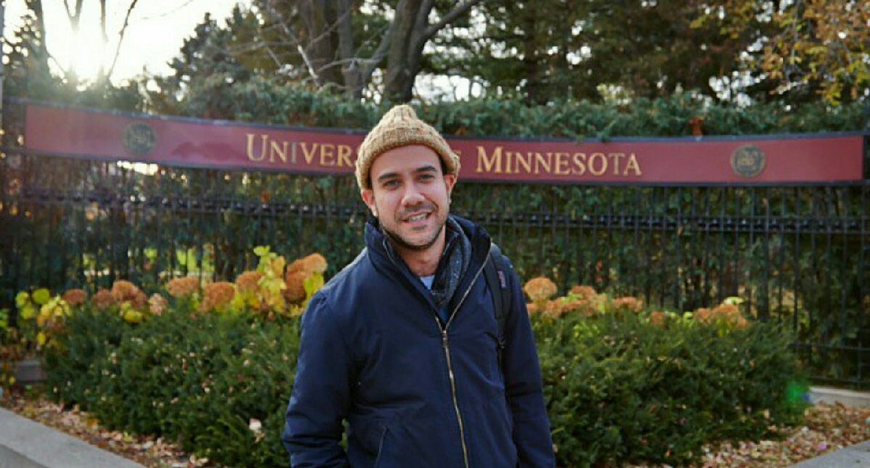Working Across Disciplinary Fields
Nico Ramos Flores, a Spanish and Portuguese Studies PhD candidate, is writing his dissertation on Afro-Caribbean/Afro-Latino literature. Yet, Nico recently crossed into a new disciplinary field to work with Professor Greta Friedemann-Sanchez on her project, “Family Commissioners: Fostering Justice, Security and Peace in Colombian Families in the Post-Conflict Era” (COLPAZ). By crossing into a new field, Nico was presented with the intellectual challenge of having to learn the background of these issues while helping develop new research.
Prof. Friedemann-Sanchez’s project focuses on the failure to implement Colombia’s partner violence laws despite their enactment in 1996 and 2008. Colombia’s rates of intimate partner violence are among the highest in the world. In light of these human rights abuses, the project evaluates how these laws have failed to live up to their promises to protect the rights of women to live free of violence.
Nico’s role in the project was to sift through and read literature on topics such as law, anthropology, social work, risk assessment, and sociology regarding violence against women. He then analyzed and synthesized his research into a 20+ page summary which included his perspectives and criticisms. Prof. Friedemann-Sanchez, valuing Nico’s intellect and insight, incorporated his work into her project.
Through his research, Nico became fascinated with the way in which particular countries’ legal systems oppress their citizens, and how women – primarily in third world countries – experience this oppression disproportionately. With these human rights abuses as motivation, Prof. Friedemann-Sanchez and Nico have prioritized a goal of restorative justice for victims.
Nico also learned that, within the legal framework, the issue of intimate partner violence is approached as a one-size-fits-all solution, failing to account for the unique realities and inequities varying from country-to-country and situation-to-situation. For one, Nico’s readings revealed that socioeconomic realities are a major factor in the prevalence of intimate partner violence.
Another interesting finding for Nico was the similarity between Latin America’s legal discourse and that of the United States in the 1990s when North American politicians were labeling certain actions as crimes or not. In the case of Colombia, the laws are in place at the top, but enforcing the laws that prevent and protect women from intimate partner violence are not enforced at the bottom. Citizens, thus, experience this vertical power dynamic disproportionately, and, as a result, domestic violence gets perpetuated. This asserts the need for policy changes in order to break the cycle of domestic violence at all levels from the citizens to the political and judicial arena.
When Nico graduates, he will look for work either in academia or in the professional world. He is unsure where his studies will take him, but during his work with Prof. Friedemann-Sanchez, he realized he is capable and equipped to undertake a wide array of work and careers, not just in his area of study in academia.



